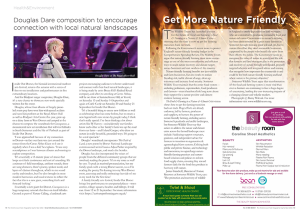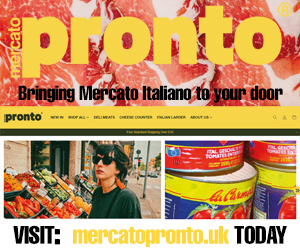
Inside Out Dorset, the biennial international outdoor arts festival, returns this autumn with a series of free-to-see installations and performances in five extraordinary locations.
And for Bridport singer songwriter, Douglas Dare, it’s a rare chance to showcase new work specially written for the event.
Douglas, whose four albums of largely piano-led avant-pop have won him widespread acclaim and seen him perform at the Royal Albert Hall as well as Bridport Arts Centre this year, grew up on a dairy farm in West Dorset and jumped at the chance to compose the soundtrack for Consequences, a monumental new art installation that will visit hillsides in South Somerset and the Isle of Purbeck as part of Inside Out Dorset.
‘I was approached because of my connection to Dorset—in fact our farm was just around the corner from the Cerne Abbas Giant so I saw it regularly when I was a kid,’ he explains. ‘It was very serendipitous as I was between albums and wanting to explore composition.
‘It’s essentially a 15-minute piece of music that loops so it feels continuous and sort of unending. It’s a mixture of field recordings, ambient sounds, there are song elements, there’s poetry, spoken word, and layers of clarinet throughout, which to me sound earthy and timeless, but I’ve also brought in more modern harmonies and vocal textures to reflect the fact that this is a new giant, something fresh and forward-looking.’
Essentially a new giant for Dorset, Consequences is a huge temporary artwork that lives on local hillsides. Created as part of Nature Calling, a landmark arts project encouraging audiences to better understand and connect with their local natural landscapes, it is being made by artist Becca Gill’s Radical Ritual company, and after its unveiling at Cerne Abbas, will be on show at Summerhouse Hill, in Yeovil, on Saturday 13 and Sunday 14 September and again at Corfe Castle on Saturday 20 and Sunday 21 September for Inside Out Dorset.
‘It’s a beautiful thing to create new folklore as well as celebrating what has come before, but to create a new legend with new stories by people today, I think that’s really special. I’ve been thinking a lot about artists like PJ Harvey—coincidentally our families know each other as her family’s farm was up the road from our farm—and Erland Cooper, who draw on nature in really beautiful, grounded ways. It’s going to be a real spectacle.’
Douglas’ soundtrack incorporates This Patch of Land, a new poem by Dorset National Landscape commissioned writer Louisa Adjoa Parker inspired by the Dorset landscape, and much else besides.
Douglas has also incorporated the voices of people from the different community groups that are involved, reading the poem. ‘It’s in my voice as well’ he says. ‘I speak in received pronunciation, but my family speak with a strong Dorset accent, so as I’m reading the poetry I’m leaning into my West Dorset roots, accessing and really embracing that side of me in my work for the first time.’
A family friendly arts festival, Inside Out Dorset brings live performance to unexpected places—town centres, village squares, beaches and hilltops. It will run. from 12 to 21 September. For more information visit: https://activateperformingarts.org.uk/
Get more Nature Friendly
The Wildlife Trusts has launched a vision for the future of food and farming—Food & Farming in a Nature & Climate Crises—stressing that the time is now to get the farming transition back on track.
Following the Government’s recent move to protect England’s nature-friendly farming budget in the Comprehensive Spending Review, The Wildlife Trusts argue that nature-friendly farming must move centre-stage as one of the most cost effective and efficient ways to reach nature recovery and climate targets across Somerset and vast swathes of the country.
Nature-friendly farming benefits not just wildlife and farm businesses, but also works to reduce flooding risk, tackle climate change, clean up waterways and increase food security. Somerset Wildlife Trust maintain that the entire food system—including politicians, supermarkets, food producers and farmers—must therefore think long term about their support for a nature-positive and climate-resilient farming sector.
The Food & Farming in a Nature & Climate Crisis vision shows how to get the farming transition back on track. Huge efforts are already underway, led by farmers, producers and suppliers, to harness the power of nature-friendly farming, including across Somerset’s peatlands and arable landscapes, but Somerset Wildlife Trust say that action to address the nature and climate crisis across the farmed landscape must include: Facilitating support structures, guidance, and independent advice for farmers to transition to regenerative & agroecological farm systems; Utilising both public and private finance, and technology and innovation, to supercharge nature-friendly farming practices and nature-based solutions and policies to reform food supply chains, ensuring they reward farmers fairly for the food they produce in harmony with nature.
James Grischeff, Director of Nature Recovery at Somerset Wildlife Trust, says: ‘The protection and recovery of wildlife in England is utterly dependent on land managers who are committed to producing sustainable food and nature-rich areas. Commitment to nature’s recovery has been demonstrated by a great many farmers in Somerset through showing good will and grit, but to sustain this effort they need sustainable businesses, supported by the people who benefit the most from their efforts: the public. The Government needs to recognise the value of nature to society and the role that farmers and land managers play in the protection and recovery of nature through well-funded, properly targeted schemes with integrated advice and training that recognise how important the countryside is and could be for both nature-friendly farming and land where nature is the primary objective.’
Somerset Wildlife Trust argue that transformation of the food and farming system is more vital than ever as farmers are continuing to face a huge degree of uncertainty, battling the ever-increasing impacts of a changing climate and volatile markets.
Photograph (c) Barny Wilczak. For more information visit: www.wildlifetrusts.org.



